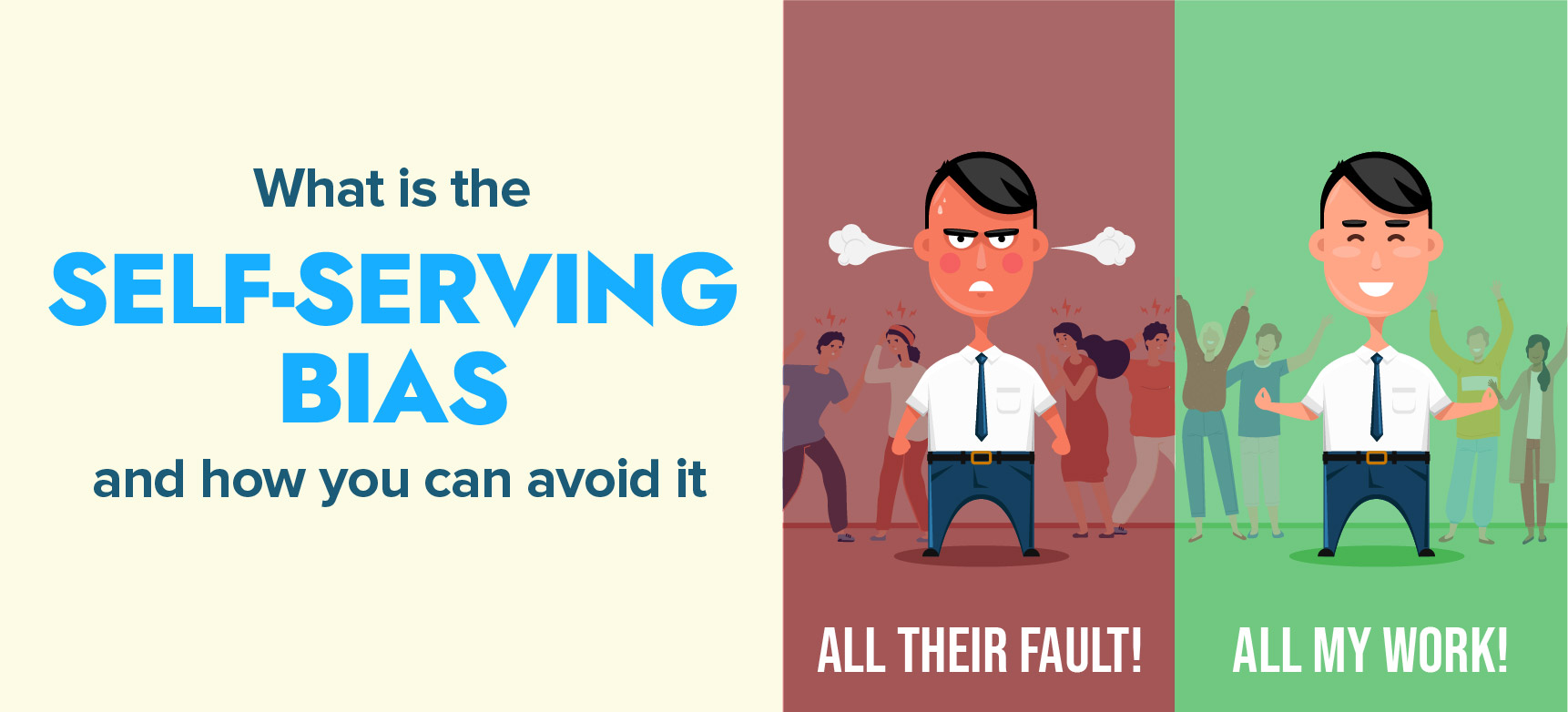
Picture yourself sitting in a classroom, anxiously awaiting the results of your science exam. When you finally get your answer sheet, you turn it over only to see that you haven’t scored well. While still in disbelief, your mind immediately starts to think of all of the possible explanations for this outcome. Like maybe the questions were tough, the answers were graded unfairly, or your teacher didn’t explain the concept too well and the list goes on…
Now let’s flip the script. Imagine you scored really well in your exam. You start praising yourself for how hard you’ve studied, how smart you are and the list goes on. This is called the self-serving bias. It is a common habit, where we attribute success and positive outcomes to our own actions and when things go wrong, we blame other people or external factors.
Though self-serving bias is common, there are many ways to avoid it. To begin with, practising mindfulness helps with spotting self-serving bias when it occurs. Being aware of the bias and its impact is essential because it can change how we learn from our mistakes and it can affect our decision-making process.
Also read: Struck By The Sunday Scaries? Here’s How You Can Banish Them
Here are a few ways to avoid the self-serving bias at work, and prevent it from affecting your decision-making.
Be kind to yourself even when the outcome is negative. By being self-compassionate and accepting criticisms for personal improvement rather than as an attack, you will be able to better accept your own mistakes. Research has found that practising self-compassion reduces negative feelings and thoughts.
A huge part of practising self-compassion involves working to be less self-critical. It is important to realise that making a mistake at work is normal. Your ability to demonstrate accountability especially when experiencing a sort of personal failure will help you improve upon your mistakes. Studies suggest that people who use self-compassion are less critical of themselves after making a mistake.
Becoming more aware of the bias can help you see situations more realistically. When you assess situations, pause for a moment to consider whether this bias might influence your assessments.
It’s important to create an environment in which employees and managers feel comfortable sharing feedback with each other. If giving and receiving feedback is a part of your workplace culture, it will be easier to identify self-serving bias before it takes over. But in order to make this work, feedback must go both ways. This will not only make employees feel more empowered, but will also keep self-serving behaviour in check at managerial level.
At the end of the day, self-serving bias is all about taking credit or blaming others for the outcome. But the truth is, the most important part of any task is the process. The process will help you determine who is responsible for what, while clearly setting expectations.
How do you deal with the self-serving bias? Let us know in the comments below.
Head to Life at BYJU’S to learn more about our work, people, and the stories that make us unique. To explore job opportunities, check out Careers at BYJU’S.
Damini is passionate about photography and travelling. She is happy to have her camera in hand to click random pictures. Always searching for answers about the chaos around her, she spends most of her time reading and learning new things. She also loves listening to music but is a pathetic singer herself. From being a journalism student to working with several media houses, she hopes to keep narrating compelling stories all her life. Write to her at damini.goel@byjus.com or storyweavers@byjus.com. BYJU'S